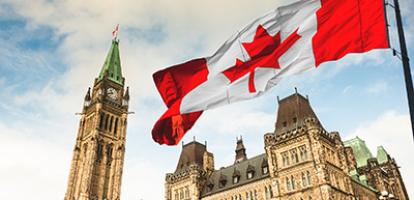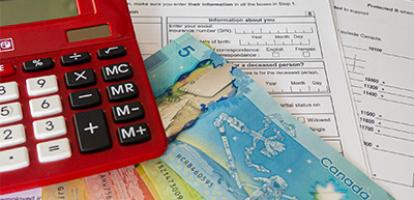There’s hardly a glimmer of sunshine in the COVID-19 crisis, just a constant stream of horribly depressing news and worrying statistics, with no vaccine or antiviral breakthrough in sight.
The skies darkened even further on Friday, when U.S. President Donald Trump suddenly announced a set of trade restrictions under a Korean-War-era law, prohibiting U.S. exports of medical supplies including surgical face masks made by Minnesota-based 3M Corp. The order specifically bans exports to Canada.
It comes at the same time Canada and the United States just entered into a free trade agreement that says in its preamble that it was concluded in recognition of “the longstanding friendship between them and their peoples, and the strong economic co-operation that has developed through trade and investment.”
Coming as a total surprise and at a time when international co-operation is desperately needed, this drew an immediate response from Prime Minister Justin Trudeau, who warned that cross-border trade and services go “both ways," but then wisely backed away from threats of countermeasures, instead preferring dialogue and diplomacy to get the export ban reversed.
This latest America-First move by Mr. Trump has reverberated well beyond Canada. In what can be described as resurgent mercantilism, the order also requires 3M to ship all masks made in its foreign operations to the United States, an astounding assertion of extraterritorial reach.
As reported in the Washington Post and other media, the German government is vigorously protesting this, including a diversion to the United States of 200,000 masks that were en route to Germany from China. The Guardian said that the German allegations “had added to a chorus of complaints about the Trump administration’s practice as the U.S. wields its clout in a marketplace for scarce medical supplies that is becoming a free-for-all, with nation competing against nation.”
Brazil and France have complained that the United States was outbidding them in the global marketplace for critical medical supplies.
Ironically, on the same day Mr. Trump announced the U.S. export ban, the World Trade Organization and other international bodies issued warnings about the damage trade restrictions have on efforts to curb the pandemic, calling on governments to keep borders open to ensure global supply lines can keep functioning.
The danger is that this episode could start to spin horribly out of control, as governments, under incredible pressure and with tensions running high, take the same beggar-thy-neighbour approach to providing medical supplies.
Even if a solution is found for Canada to get these supplies from its closest neighbour, there’s the possibility of me-first actions by other countries taking their cue from Mr. Trump, the last thing needed at a time when the world community needs extraordinary statesmanship and international co-operation.
This flare-up illustrates a harsh geopolitical reality – the instincts of governments to retreat behind national interest even at the expense of friends, allies and trading partners. As every university undergraduate learns the first day of international relations class, self-interest is at the heart of the nation-state system.
It also reveals the frailties of the multilateral trading regime, with rules painstakingly constructed since the end of the Second World War, mostly under past U.S. leadership. These rules are reflected today in the World Trade Organization agreement to maintain open markets, fixed tariffs and non-discriminatory treatment in the exchange of goods and services. For more than 60 years, these rules have been pretty well respected.
The problem is those same rules have major limitations – off-ramps giving countries the right to take exceptional measures in times of international emergency, including the export restrictions to prevent critical shortages of essential products. While countries have tended to exercise restraint in using these exceptions, it would be hard to argue that Mr. Trump’s latest move is in breach of these multilateral rules.
Ultimately, it’s not a question of international law but of statesmanship, speaking of which are the commendable qualities that 3M CEO Mike Roman demonstrated in interviews he gave in response to the slamming he and his company got last week from Mr. Trump. A news release by 3M said the company would continue to meet its obligations in the current crisis because there are “significant humanitarian implications of ceasing respirator supplies to health care workers in Canada and Latin America, where we are a critical supplier of respirators.”
These are just the leadership qualities needed in times of global crisis, the same kind demonstrated by U.S. president Franklin Roosevelt when Britain was facing the Nazi onslaught alone in 1940-41 in a previous crisis that threatened to engulf the world.
It’s not too late to hope those same high ideals of goodwill, friendship and co-operation will have some influence in getting a decent response from the White House in face of the current crisis which, as said many times, we are all in together.
Published in the Globe and Mail
Lawrence Herman, a former Canadian diplomat, is counsel at Herman & Associates and senior fellow of the C.D. Howe Institute in Toronto





